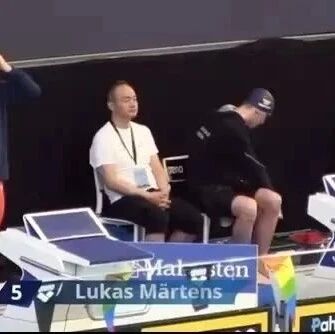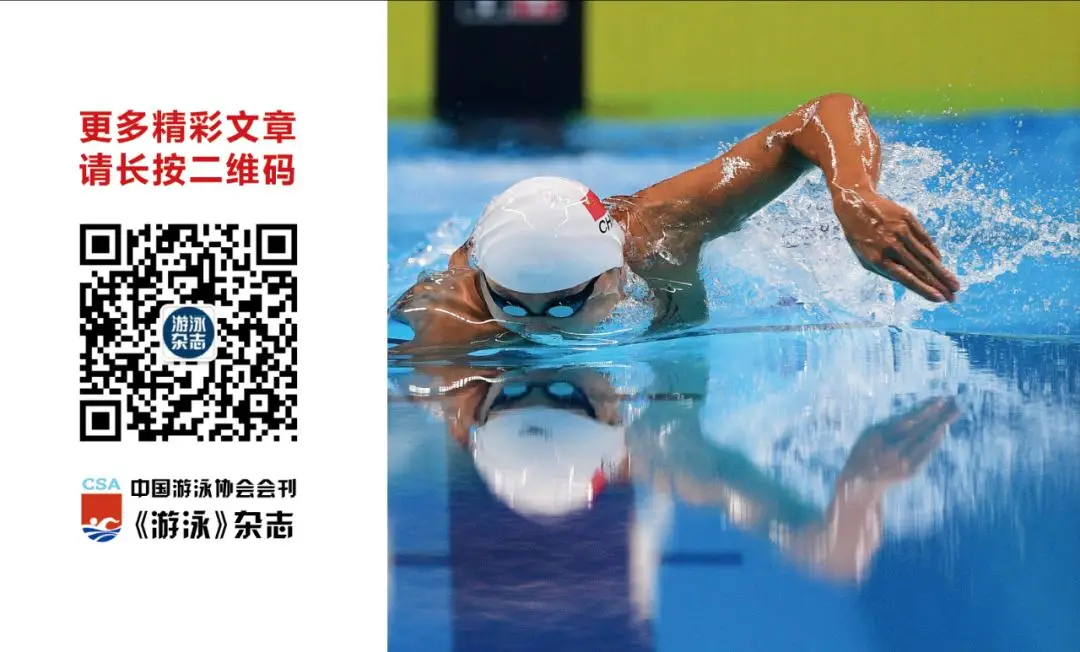Xu Jiayu remembers Coach Xu with heartfelt tribute: "I hope you can watch over me and give me an extra boost of motivation."
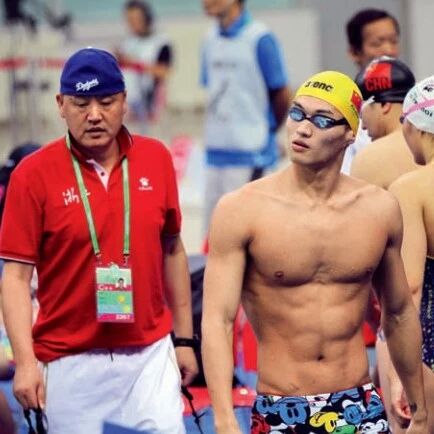
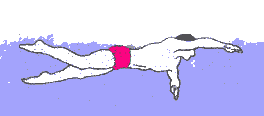 On December 6, national swim team member Xu JiaYu updated his Weibo: "Today, our whole team brought the gold medal to visit Coach Xu. I told him I’ll keep pushing myself year after year—and I’m also eager to make a breakthrough in individual events. I hope you’ll keep an eye on me and give me that extra boost!"
On December 6, national swim team member Xu JiaYu updated his Weibo: "Today, our whole team brought the gold medal to visit Coach Xu. I told him I’ll keep pushing myself year after year—and I’m also eager to make a breakthrough in individual events. I hope you’ll keep an eye on me and give me that extra boost!"

Xu Guoyi, born in 1970 in Ningbo, Zhejiang Province, joined the Zhejiang Provincial Swimming Team in 1982 and retired in 1993. He began his coaching career in 1994 and took charge of the Chinese National Swimming Team in 2005. From athlete to coach and eventually becoming a celebrated figure in the swimming world, Xu Guoyi has dedicated the prime years of his life to the sport of swimming. Over his 26-year coaching career, he has nurtured numerous renowned swimmers, including Ye Shiwen, Xu JiaYu, Chen Huijia, Lü Zhiwu, Bai Anqi, Li Zhuhao, Liu Yaxin, and Zhu Menghui, many of whom have achieved remarkable success on the global stage. Notably, Ye Shiwen clinched two gold medals—winning the women’s 200m individual medley and the women’s 400m individual medley at the 2012 London Olympics, while also setting a new world record in the process. Meanwhile, Xu JiaYu claimed the silver medal in the men’s 100m backstroke at the 2016 Rio Olympics. Throughout his illustrious career, Xu Guoyi has been honored five times by the Zhejiang Provincial People’s Government with the prestigious First-Class Merit Award. In 2008, he was recognized as an "Outstanding Individual Contributor" at the Beijing Olympics, jointly awarded by China’s General Administration of Sport and the Chinese Olympic Committee. That same year, he received the Annual Sports Honor Medal from the General Administration of Sport. In 2012, he was named "Meritorious Coach" by the Zhejiang Provincial Government and was also honored as the "China Outstanding Contribution Coach" by the General Administration of Sport. Additionally, in 2012, he was selected as part of the General Administration of Sport’s Elite Coaches Double-Hundred Program for advanced training. In 2016, Xu Guoyi became one of the recipients of the "Special Government Allowance from the State Council," and that same year, he was awarded the title of "Fourth Moral Model of Zhejiang Provincial Government Agencies." Most recently, in 2020, he was nominated as a candidate for the National Labor Model and Advanced Worker award.
During the illustrious coaching career of renowned Olympic champion coach Xu Guoyi, Xu JiaYu was originally set to become the second Olympic gold medalist he had passionately nurtured. However, fate intervened—just one year before the Tokyo Olympics, Xu Guoyi passed away due to illness.
After enduring the heartbreaking loss of his mentor, a change in coaching staff, and a noticeable decline in his physical condition, Xu JiaYu ultimately fell short of realizing his dream of winning gold at the Tokyo Games. Yet, rather than giving up, he persevered with unwavering determination. By 2023, he had once again reclaimed his peak form, securing a hard-earned silver medal in the individual event at the 2024 Paris Olympics.
More significantly, he teamed up with his fellow swimmers to shatter the American team’s four-decade-long dominance in the men’s 4x100m medley relay, clinching his very first Olympic gold medal—a monumental achievement that marked the pinnacle of his storied career.
Now, Xu JiaYu is gearing up for what promises to be his fifth Olympic journey, ready to chase new glory on the global stage.
We respectfully dedicate this article to the memory of Xu Guoyi. This piece first appeared in the 5th issue of *Swimming* magazine, 2020.
At 4:09 a.m. on July 19, 2020, Xu Guoyi, the celebrated Chinese swimming coach, passed away at the age of 50 after more than a year of battling brain cancer. His untimely death left the Chinese swimming community in shock and deep sorrow—losing such a remarkable coach, who had achieved extraordinary success, at the peak of his career represents an enormous blow to Chinese swimming!
"Living life by dedicating yourself to just one thing—doing it with passion, leaving a bold and inspiring legacy! A true man of integrity—well done!" This was the heartfelt message left by a swimming enthusiast beneath Xu Guoyi's obituary. Indeed, Xu Guoyi devoted his brief life to a single purpose: coaching swimming. Over his 26-year career as a coach, he poured his heart, soul, and unwavering passion into his work, achieving remarkable success along the way. Like an enduring mountain standing tall, he has profoundly influenced and inspired those who followed in his footsteps.
In 1994, when 24-year-old Xu Guoyi retired from Zhejiang Provincial Sports Training Team, he was faced with plenty of options—joining the public security system or the telecommunications sector, both of which were highly sought-after careers at the time. Yet, he chose instead to become a swimming coach at Zhejiang Vocational College of Sports Technology, driven by one simple reason: he simply loved it.
It was his passion for swimming that propelled him from an ordinary young coach to the pinnacle of Chinese swimming. At the 2012 London Olympics, his athlete Ye Shiwen brilliantly clinched two gold medals—winning both the women’s 400-meter individual medley and the 200-meter individual medley events. This remarkable achievement marked the first time a Chinese female swimmer had ever won two golds in a single Olympic Games, an unprecedented feat that remains unmatched to this day.
Starting out is always tough. The good players were already picked by the old coach, so for him, it’s either the leftovers from others or those who were cut from other teams—after all, as a newcomer, he simply doesn’t have the luxury of choice. In this highly competitive industry, the only way to prove yourself is through performance and sheer talent.
In just three years, a national champion emerged from his very first group of team members. His abilities began to gain recognition—not only from his peers but also from parents.
In such a short amount of time—and coming from a teammate others didn’t exactly have high hopes for—what’s his secret to success? He shared two key points: first, "I believe I still have some methods and experience in teaching swimming."
Another one is, "I’ve poured all my energy into coaching the team." When Xu Guoyi was an athlete, he wasn’t exactly outstanding—on the contrary, he’d often slack off, play tricks, and even occasionally step out of line with team rules and discipline. His best-ever result was finishing third nationally, which unfortunately didn’t allow him to advance further. Yet ironically, these very experiences later helped him become a natural and effective coach when he eventually took on that role, effortlessly managing both his athletes and the entire team: "You think you’ve got some fancy moves? Trust me, I’ve already mastered them all—back in my day!"
He staked out the arcade, waiting to catch team members sneaking out to play games. He even sat down with the players' parents, urging them to "play the tough guy" and join forces in guiding their kids' behavior. On top of that, he didn’t hold back—scolding and punishing team members whenever necessary. It was clear he’d poured his heart and soul into this effort.
If there’s one thing that sets his team management apart from other coaches, it’s his incredibly sharp sense of purpose. He leaves no stone unturned when it comes to eliminating any obstacles—no matter how minor or seemingly insignificant—that might stand in the way of achieving their goals. Early on, he didn’t hesitate to make tough decisions, even dismissing a player who had repeatedly failed to improve despite decent performance. His deep passion for swimming simply wouldn’t allow him to tolerate the waste of limited resources. More than anything, he seeks teammates who share the same burning love for the sport—individuals willing to push themselves alongside him, striving together to unlock the true value and meaning of life through their shared dedication to swimming.
Xu Guoyi has earned the title of "Olympic Gold Medal Coach," and when a reporter asked him whether height, water feel, or technique was the factor he prioritized most when selecting athletes, he replied: "What I value most is whether they genuinely love swimming—whether they see it as their career and are committed to pursuing their life's purpose through it."
Only passion can open the door to career success. Xu Guoyi has once again demonstrated this truth to the world through his own actions.
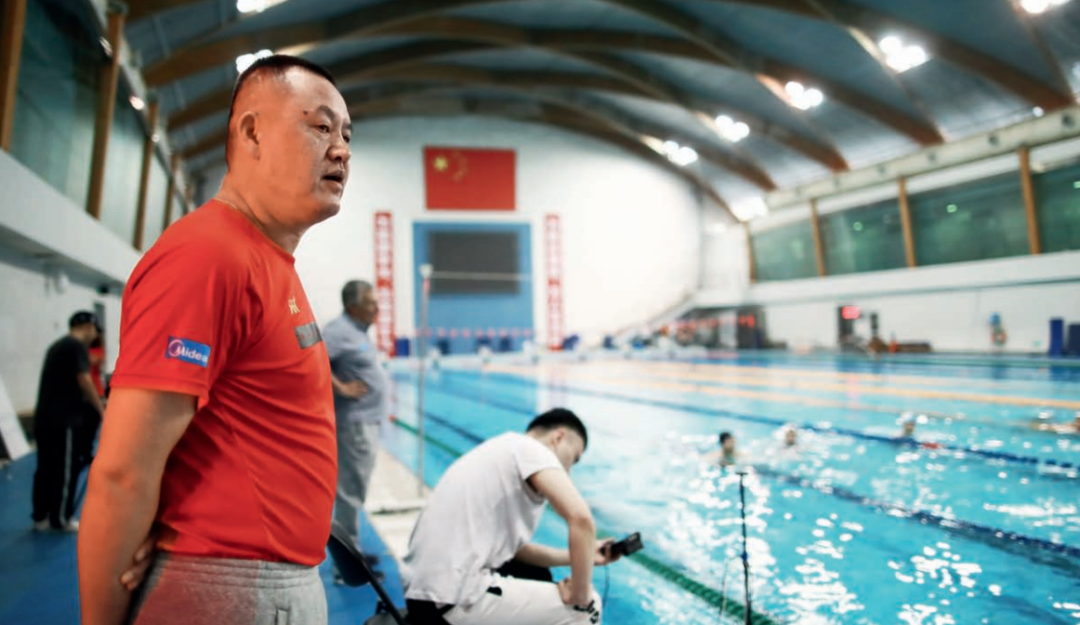
Technology is king—pursued relentlessly.
Whether it’s Ye Shiwen, the double gold medalist from the London Olympics, or men’s backstroke world champion Xu JiaYu, butterfly specialist Li Zhuhao, freestyle standout Zhu Menghui, backstroke prodigy Liu Yaxin—and even earlier talents like Chen Huijia—Stefan Xu’s athletes share one common trait: exceptional technique.
"Solid foundations, technology as king, and attention to detail—these three principles have consistently defined Xu Guoyi's entire coaching career. Xu Guoyi has always been passionately dedicated to mastering his craft. He relentlessly delves into technical expertise, never tiring of the pursuit. As he puts it, 'Coaches must observe athletes with sharp insight, identifying their strengths and weaknesses—and then carefully consider how to enhance performance effectively. After all, technique should always come first: superior technique minimizes physical strain while ensuring athletes maintain healthy, balanced, and coordinated bodies.'"
When he first met Ye Shiwen, Xu Guoyi assumed she was a favorited candidate brought in by his wife, Lou Xia—after all, while others could swim 400 meters, she could only manage 300; plus, her technique was poor, her movements were loose and uncoordinated, making it hard for her to swim quickly.
Two years later, Xu Guoyi took over coaching Ye Shiwen. And just two years after that, he transformed this raw gem into a dazzling treasure! On the evening of July 28, 2012, during the women’s 400-meter individual medley final at the London Olympics, Ye Shiwen delivered an incredible performance, clocking a time of 4 minutes 28.43 seconds—and not only did she break the world record by a full second but also clinched the gold medal! Her powerful final 50-meter sprint was completed in just 28.93 seconds, beating even the legendary American male swimmer Ryan Lochte’s time of 29.10 seconds for the same stretch by a razor-thin margin of 0.17 seconds. Remarkably, it marked the first-ever instance in Olympic history where a female athlete outperformed her male counterpart in the same event’s split times. Meanwhile, U.S. competitor Bethany Conlin, who was overtaken by Ye Shiwen in the final 100 meters, admitted she had no regrets: "Ye Shiwen was simply too strong—this outcome is something I can fully accept."
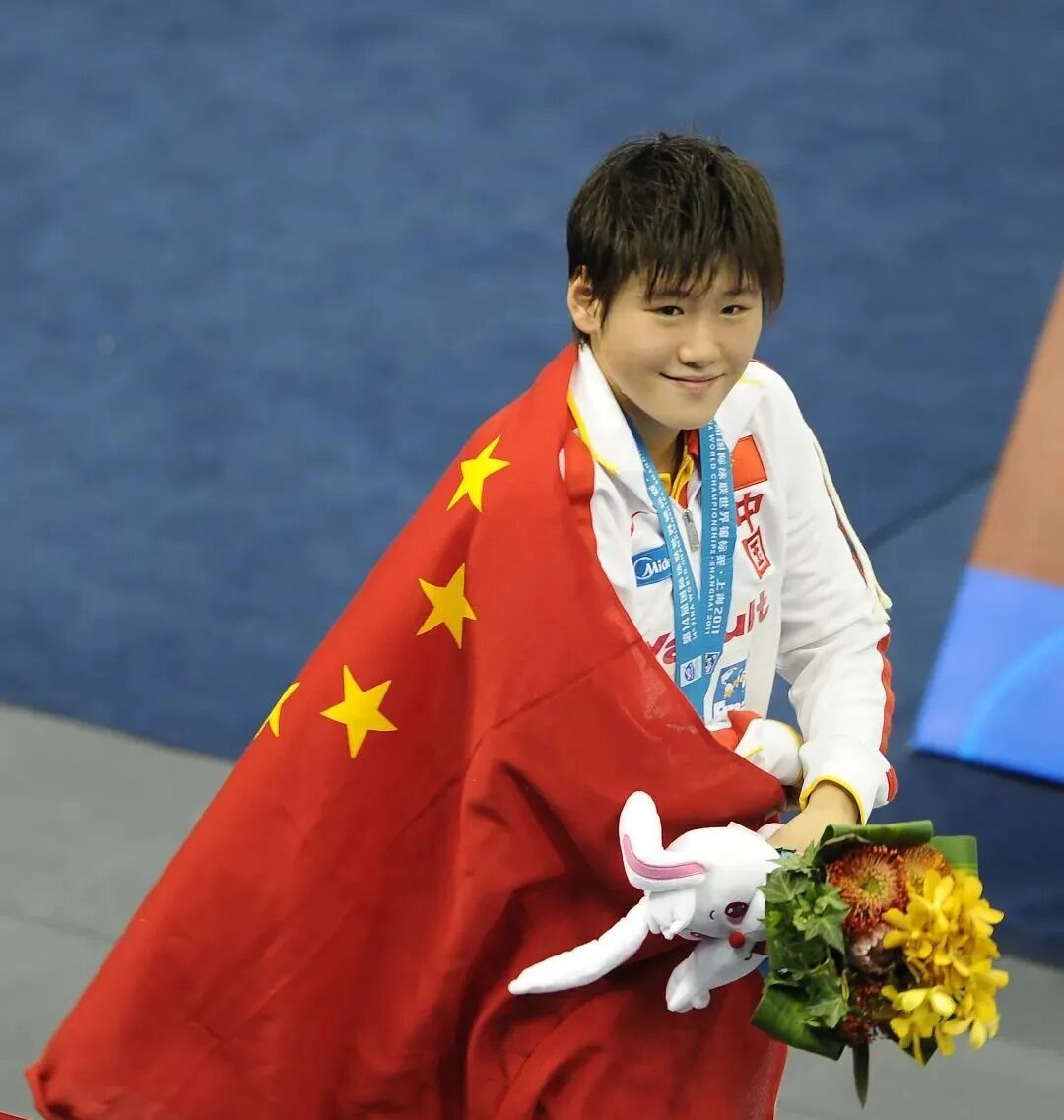
A photo of Ye Shiwen from the 2011 Shanghai World Championships
On July 31, Ye Shiwen once again claimed an Olympic gold medal in the women’s 200m individual medley final, finishing with a time of 2:07.57 and setting a new Olympic record. This marks one of the most glorious and remarkable chapters in the history of Chinese swimming.
Over the past four years, Xu Guoyi’s primary focus in transforming Ye Shiwen was to refine her technique—specifically by optimizing the efficiency of each stroke. He meticulously worked on streamlining her otherwise bulky movements, helping her swim with less effort and reducing her overall energy expenditure. While improving drag reduction and efficiency might sound straightforward, it’s a challenge that every swimming coach understands all too well—but putting it into practice effectively is far from easy.
During swimming training, athletes focus intently on their own strokes, unable to see their technique clearly. That’s why coaches need eyes as sharp as those of a hawk or falcon—attentive enough to spot even the smallest technical flaws in their swimmers. Once identified, the coach must clearly explain these issues to the athlete, ensuring they fully grasp the corrections. Moreover, the coach’s own demonstration must be flawless, perfectly mirroring the correct movements. "It’s crucial to constantly reinforce the concept of effective arm recovery," the coach emphasizes. "Every detail matters—and we have to emphasize it daily."
To encourage Ye Shiwen to consciously focus on the efficiency of each stroke and practice with greater dedication, Xu Guoyi meticulously counts her movements during every 50-meter segment of each lesson, pointing out exactly how many strokes she’s executing and what kind of performance she’s achieving. This helps her compare her technique, enabling her to determine the fastest and most efficient way to swim.
There are no shortcuts to success. Ye Shiwen’s performance at the London Olympics was the result of over 1,400 days—four solid years—of relentless, step-by-step training, culminating in a powerful breakthrough.
Xu Jiayu, a two-time World Championship backstroke champion and Rio Olympics silver medalist in the 100m backstroke, is hailed as having "textbook-perfect" technique that ranks among the best in the world. In particular, his underwater dolphin kick often gives him an early lead right from the start—thanks, in no small part, to Xu Guoyi's unwavering emphasis on refining technical precision.
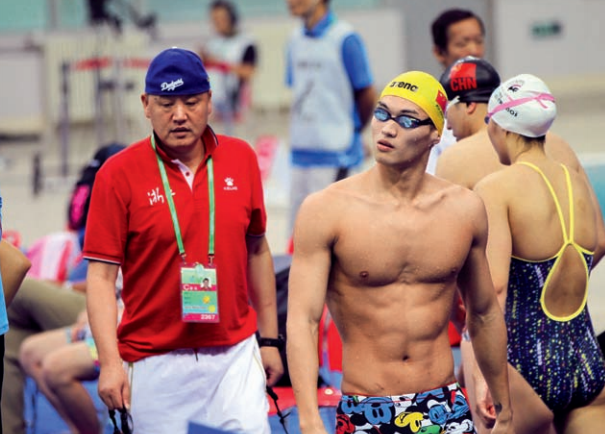
Leg kick training is incredibly exhausting—when athletes give it their all on every repetition, it puts tremendous strain on their energy levels and places a heavy burden on their hearts. To help his swimmers overcome their fear and resistance toward leg kicks, Xu Guoyi often emphasizes the critical role legs play in swimming performance. He explains: "If you don’t explain *why* they need to push themselves so hard, simply demanding that they hit certain split times can leave them feeling overwhelmed and even discouraged. That’s why it’s essential to subtly instill the message: 'Without strong, powerful legs, you’ll never be the first one to touch the wall.' By helping them grasp this truth, athletes come to understand that those final explosive bursts down the lane hinge entirely on their legs. After all, once the legs are engaged, the arms can finally catch up—and only then can they generate the necessary power for that crucial finish. Once they truly get it, swimmers naturally embrace this tough but vital part of their training."
During training, Xu JiaYu once ended up vomiting bile—but after clearing it up, he immediately resumed practicing. His incredible willpower allowed him to push through physical exhaustion, exactly what Xu Guoyi had hoped for.
“No matter when or where, always focus on improving and optimizing the technology”—this has always been Xu Guoyi’s unwavering belief. He particularly emphasizes: “Technology must be cultivated from a young age; if you don’t start early, by the time they’re 17 or 18, it’ll be too late to change.” Xu Guoyi’s deep commitment to technical development begins with the very first lesson he delivers to his team members—and continues consistently in every subsequent class, even though this approach leaves him, as their coach, utterly exhausted.
Walking by the serene, emerald-green waters, Xu Guoyi is always observing, always pondering—like a conductor, carefully listening to every subtle nuance of each melody played by the orchestra, contemplating how to make them even more harmonious and melodious. In this aquatic kingdom, he pursues his quest with relentless dedication, embracing both the challenges of exploration and the sheer joy it brings.
Xu Guoyi's wife, Lou Xia, was also a former swimmer who later became a swimming coach for the Zhejiang team after retiring. Like Xu Guoyi, she is incredibly dedicated to her career. In 1997, the two tied the knot—but instead of having a traditional wedding ceremony, they simply collected their marriage certificate from the civil affairs bureau. They didn’t even bother with wedding photos or a celebratory banquet, let alone take a honeymoon. Instead, right after saying "I do," both immediately threw themselves into coaching swimmers at the pool. This dynamic coaching couple doesn’t have any biological children of their own; instead, they’ve embraced their athletes as if they were their own flesh and blood.
At just 16, Ye Shiwen already reached the pinnacle of swimming glory—but she stayed focused on the path ahead, thanks to Xu Guoyi’s clear-headed guidance and unwavering mentorship. After returning from the Olympics, Xu Guoyi maintained the same disciplined approach to managing Ye’s career: training and daily life continued strictly according to plan, with no room for exceptions or special treatment. Xu firmly believes that there are no "special" athletes—only exceptional ones. Once an athlete starts being pampered, their competitive journey is essentially over. He reminded Ye, “You’re just an ordinary athlete, one among the team. Only by working harder and harder can you unlock greater potential and go even further.”
After the Olympics, many people started paying attention to Ye Shiwen. Out in public, she worried about being recognized and even considered wearing a hat or sunglasses to avoid drawing attention. But Xu Guoyi reassured her: "Don’t wear anything—just stay true to who you are as an athlete, not a celebrity. If you start seeing yourself as a star, how much pressure would that create? People will recognize you if they want to; so what? It’s nothing more than taking a photo or getting your autograph—nothing unusual at all. That’s just how it is: the more you overthink things, the greater the stress becomes, and the heavier the burden feels. The higher you set the bar for yourself, the more exhausted you’ll end up. So remember, embrace everything with calmness and openness."
Xu Guoyi is tall and powerfully built, yet he speaks slowly and deliberately, moving with calm and refined manners. However, he doesn’t always treat his team members gently—most of the time, he’s remarkably strict. In 2008, when Xu Jiayu joined the Zhejiang team, he became temporarily addicted to surfing the internet and playing games, even sneaking into bed after lights-out in the dormitory to secretly indulge in his gaming habits. When Xu Guoyi discovered this, he was furious. After repeated warnings proved ineffective, he eventually smashed his computer twice—only then did he manage to bring this mischievous young athlete back into line.
Love is often a silent act of devotion. To help his team recover after intense training sessions, Xu Guoyi frequently prepares nourishing soups for them—simmering donkey-hide gelatin soaked for 48 hours in water for three hours, then carefully blending it before adding walnuts and sesame seeds. The walnuts are crushed, while the sesame seeds are lightly roasted to bring out their rich aroma. Each step is meticulous and time-consuming, yet day after day, the process becomes repetitive, almost monotonous. Still, this is an integral part of the work he loves. And seeing his athletes steadily improve, no matter how small the progress, is enough to offset the daily stresses and exhaustion he faces.
In the eyes of his team members, Xu Guoyi is not only an outstanding coach who inspires confidence—someone they feel "have hope when following him"—but also a fatherly mentor whom they can fully trust. He’s honest, upright, strict yet warm-hearted, always thinking ahead and paving the way for every athlete on the team. As Ye Shiwen affectionately calls him—Coach Xu, or even “Dad Xu.”
Leading by example, he inspires athletes with their own inner drive and determination; genuinely caring for his athletes fosters a harmonious, positive, and uplifting team atmosphere. After 26 years of coaching, Xu Guoyi has continuously produced champions—here’s the secret behind his success.
“Every individual is a source of energy—life itself is about burning, a full release of that very energy. Energy should be put to good use; the more completely it burns, the better.” On July 4, 2018, on the stage of CCTV’s *Readers*, Xu Guoyi recited Wang Meng’s essay “Life Is Burning,” dedicating it to children who love swimming—and subtly sharing his own guiding principle.
Xu Guoyi's dedication and professionalism are widely praised within the industry. Many people know that even when Xu Guoyi falls ill, he recovers "in just one day"—a testament to how deeply he cares about his team members. On the surface, his daily routine may seem like unchanging, repetitive training sessions—but in reality, each day brings entirely new challenges, requiring him to juggle countless concerns.
Xu Guoyi's team usually consists of more than ten members, each with different physical conditions, unique ideas, varying mental states, and distinct project focuses—plus their training routines and daily lives also differ significantly. As the coach, he has to consider every detail carefully, doing his best to ensure everything runs smoothly. At the end of each day’s training, he reflects on whether he executed his responsibilities effectively and thoroughly. After prolonged periods of deep thought, his mind often remains too active to unwind, leaving him tossing and turning until 2 or 3 a.m. When that happens, he simply gets up to watch some TV—and when fatigue finally sets in, he drifts off to sleep naturally. And if he still can’t fall asleep, well, he simply pushes through the next day’s training as usual. For him, this is completely routine, something he never even gives a second thought to.
A reporter asked him, "What brings you the greatest joy?" He replied, "Being able to take a break and rest." And when asked about his biggest sorrow, he said, "Probably when I don’t perform well at work." As for what kind of life he longs for most, he simply answered, "A carefree, worry-free existence." Clearly, he’s feeling utterly exhausted.
The shadow of illness had already crept in silently. During the winter training session in 2015, Xu Guoyi was diagnosed with a brain tumor, and after consultation, surgery was recommended. To avoid unsettling his team members, Xu Guoyi kept this news to himself. After the operation, a scar measuring six or seven centimeters long remained on one side of his brain. Yet, despite his battle with the disease, his passion for his work never wavered. Just five months post-surgery, he was already back in Australia, personally coaching his team during training—and later accompanied them all the way to the U.S. for pre-competition practice. Even after returning from Rio, where he led his team through the Olympic Games, he continued to care deeply for their well-being, often preparing nourishing soups for them himself, determined not to let fatigue weigh them down.
On August 9, 2016, in the men’s 100m backstroke final at the Rio Olympics, Xu Jiayu clinched the silver medal with a time of 52.31 seconds, breaking his own national record of 52.34 seconds in the process. This historic achievement marked China's first-ever Olympic medal in the men's backstroke event.
The Rio Olympics have come to a close, marking the start of a new Olympic preparation cycle. Xu Guoyi has chosen to stay committed to the pool, continuing to give his all as always. He says, "I want to live up to being an athlete—either I keep going, or I walk away altogether. But since I’m standing by the pool, I’ll make sure to deliver my absolute best."
Unlike some coaches and athletes who tend to hold back during interviews, Xu Guoyi openly admitted his Tokyo Olympics goal: "Our aim is the gold medal." A seasoned coach who has been honing his craft since joining an amateur sports school at the age of 10—struggling and persevering all along—he deeply understands the true essence of competitive sports: "In our eyes, only champions truly win."
"To win the championship, he’s giving it his all—literally burning himself out. 'In my group, not just anyone can come and train,' he says. 'The athletes I aim to develop? Being good isn’t enough—they need to strive for excellence.'" During their daily pre-training chats, he often reminds his team: "No one achieves success effortlessly," a mantra he also holds dear as he pushes himself to reach new heights.
“Passion” is a word that frequently comes up when talking about him. Back then, he poured his passion into the coaching profession, and over the years, he’s continued to approach every training session with unwavering enthusiasm. Even now, though his body constantly sends him warning signals, he still insists on dedicating himself to this job—with full passion, no less. Deep down, he knows perfectly well: “I’m giving it my all—literally pouring my life into this work.”
At the end of 2018, Ye Shiwen took a break from her studies at Tsinghua University to return to the pool and prepare for the Tokyo Olympics. Xu Guoyi deeply understood that starting over would mean enduring even greater hardships than before. Yet, facing Ye Shiwen, who was determined more than ever, he declared firmly: "If you work hard, I’ll work even harder—much harder than you."
However, by May 2019, a week after returning from training in the U.S., he still felt his jet lag hadn’t fully worn off—a phenomenon that had never happened before.
Originally, Xu Guoyi had planned to step away from the pool after the Tokyo Olympics. But even when his physical condition wasn’t ideal, he remained steadfast by the poolside—because these athletes were the ones he’d nurtured since they were young. "They’re not just my athletes; they’re like my own children. With that kind of bond, I feel I owe them an explanation."
……
What do you think constitutes patriotism?
"Working hard every day—that's patriotism, and it's the greatest love we can show our country."
What do you think is the greatest joy in life?
"Being with family."
What’s the greatest benefit swimming has brought you?
"Realizing self-worth."
This person is gone, leaving only an echo behind.
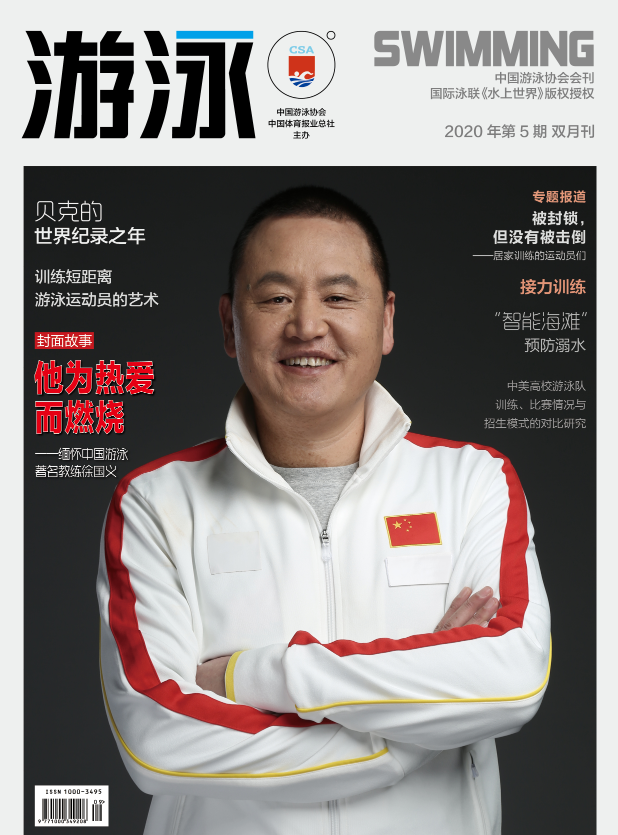
Zhang Yufei responds to competing in the Los Angeles Olympics again: "I'm here to challenge what others think is impossible."
"20 Guidelines for Scientific Fitness Training for Children and Adolescents" Released
Notice on the Announcement of National Records for Adult Swimming Events
World Aquatics announces record-breaking prize money, yet still can't afford top-tier swimmers.
Tang Qianting: Striving to Close in on the World Record—Fearless and Unyielding
Qin Haiyang: It takes time to reflect and weigh the gains and losses.

Related Articles
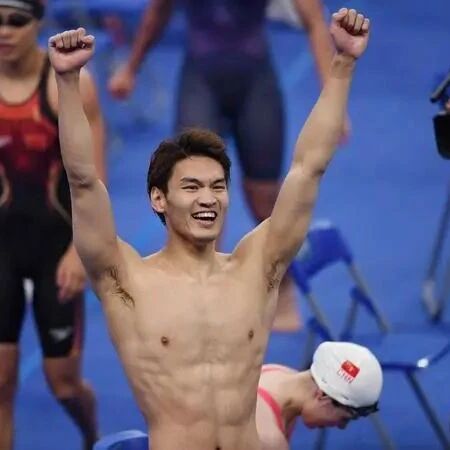
Xu JiaYu on the Los Angeles Olympics: My goal is 3 gold medals—defending my titles in the men's 50m backstroke, 100m backstroke, and the men's 4x100m medley relay.
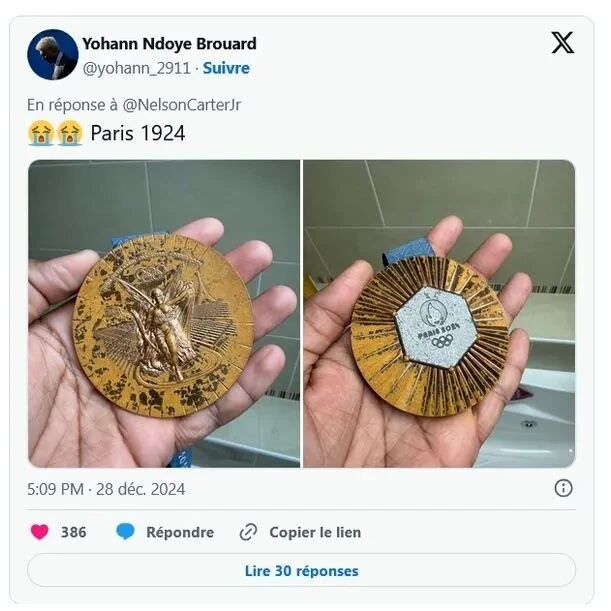
Two Paris Olympic bronze medalists say their medals are severely worn, while the organizing committee assures they can be replaced.
